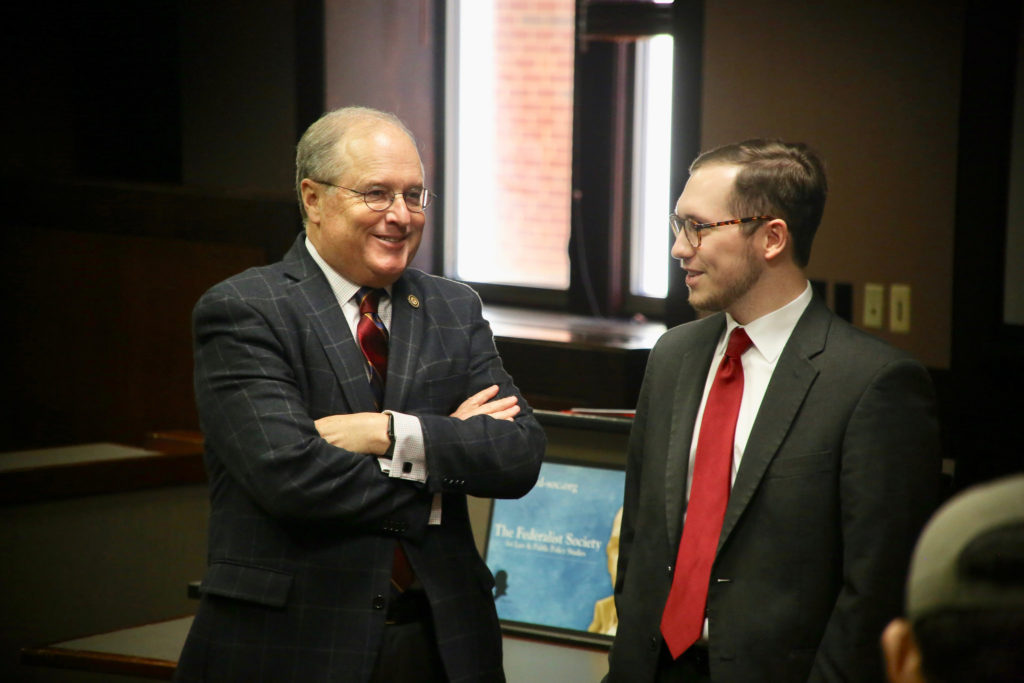Priorities for the newly appointed U.S. Attorney for the Eastern District of Tennessee include keeping America safe from threats, curbing violent crime, and combatting the opioid crisis.
James Douglas Overbey, the U.S. Attorney for the Eastern District of Tennessee and top-ranking federal law enforcement official of the state’s largest federal district, spoke to students Thursday at the University of Tennessee College of Law about his recent appointment and his priorities.
Overbey, a 1979 alumnus of the College of Law, was sworn in as the U.S. Attorney on Nov. 21, 2017 after his nomination by President Donald Trump and confirmation by the U.S. Senate.
“When my four-year term is over … I hope folks will feel safer in their communities, in their schools, and in their families,” he said. “I think that’s the most important thing we can do.”
Because East Tennessee is home to advanced technology and military operations, the area is a potential target, Overbey said.
“You may not think about East Tennessee being on the cutting edge of national security, but it is,” he said. “My focus is on keeping America safe.”
Overbey discussed the prevalence of opioid addiction in the region and throughout the United States. Because drug use and violent crime go hand in hand, too often drug trafficking leads to gun violence, he said. But Tennessee may be able to benefit from a pilot program focused on the opioid epidemic.
“We have an opioid prosecutor available to us,” he said. “This is not just a (U.S. Attorney General) Jeff Sessions priority. These are my priorities.”
Overbey also discussed the year of events that preceded his appointment, beginning with a phone call in December 2016 from Sen. Lamar Alexander. Alexander asked if he and Sen. Bob Corker could recommend Overbey for the U.S. Attorney position.
“When the senator calls and says we think you would be good at this, in my mind the only way of thinking is to say yes,” Overbey said.
After that phone call, Overbey supplied officials with his background information, then heard nothing for three months. In April, Overbey was asked to meet with U.S. Justice Department and White House attorneys. In May, Overbey flew to Washington D.C. to meet with Sessions and Deputy Attorney General Rod Rosenstein.
In July, Overbey submitted more background information to the FBI for verification. His files were then sent to the U.S. Senate Judiciary Committee for a review and confirmation vote that didn’t happen until October. Finally, after a formal nomination from Trump and approval of the full U.S. Senate, Overbey was sworn in Nov. 21, 2017, 11 months after the process began.
“By then it was a bit anticlimactic,” Overbey said. “My advice to you is if you think you ever want to be involved in government work, make sure you take good notes about everything you’ve ever done.”
Overbey is the co-founder of the Robertson Overbey law firm in Knoxville. He has practiced antitrust and commercial litigation law for 38 years and served three terms as a state senator and as the chair of the state ethics committee.
